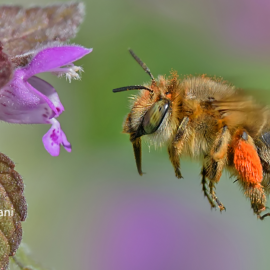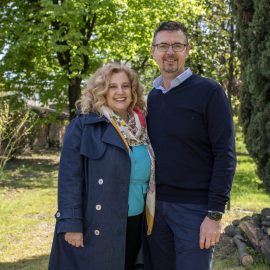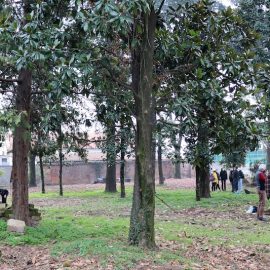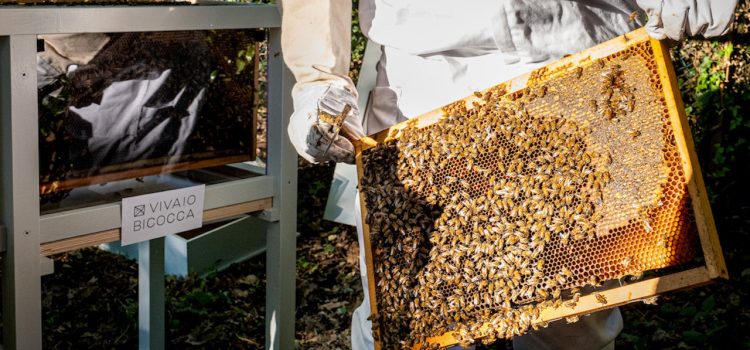
The Vivaio Bicocca apiary
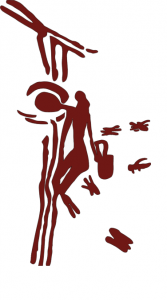
Pollinating insects play a fundamental role not only in natural areas but also in urban and peri-urban environments. Among the most effective pollinators are bees, both wild bees, which are already protected in our Vivaio, and the better known honeybees (Apis mellifera).
The relationship between man and this sod for about 12,000 years, while the oldest depiction of honey gathering dates back to about 8,000 years ago.pecies dates back to prehistoric times. It is assumed that man has been using honey as a source of food for about 12,000 years, while the oldest depiction of honey harvesting is about 8,000 years ago.
The introduction of beehives in the green areas of the Bicocca Campus has a dual purpose. First of all, the domestic bee, besides producing food resources for humans (e.g. honey), is a well-established and effective model for studying the behaviour and problems affecting generalist pollinators (i.e. those insects that are able to collect pollen and nectar from a wide panel of plants). Secondly, their growing popularity has made them an educational tool to raise awareness in society of the wild pollinator 'crisis'. Nowadays, a large proportion of wild bee species, largely unknown to the general public, are disappearing. The two hives populated by around 10,000 bees have been positioned in the heart of the Vivaio Bicocca thanks to the support and knowledge of beekeeper Marco Zucchetti and his farm Le Api in Corte. One of these is a B-Box, an innovative beehive produced by the Italian start-up Beeing, which is particularly suitable for educational activities as it is equipped with plexiglass panels that allow bees to be observed up close in complete safety.
The young people in these photos are doctoral students and collaborators of the University of Milan-Bicocca, who are learning the basics of beekeeping and will be responsible for the care and protection of the hives in the Vivaio Bicocca.
This urban apiary will have the important function of educating visitors and conveying the message that pollinators play a fundamental role in our ecosystems, bringing children and the general public closer to some scientific notions and the efforts that the University of Milan-Bicocca is making in this direction.

